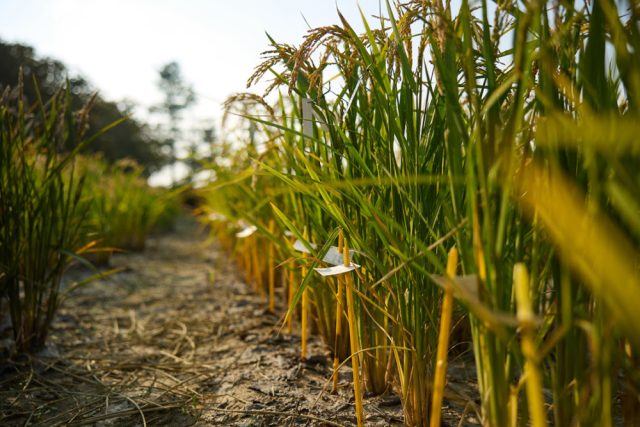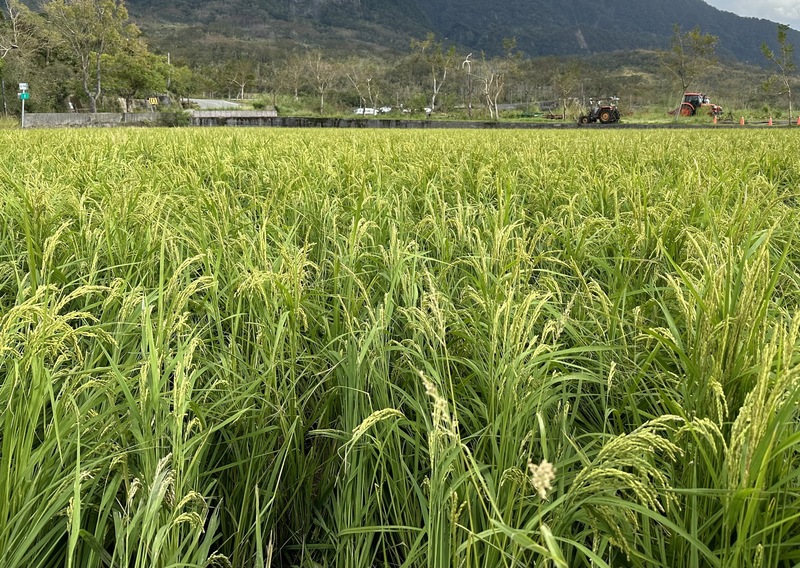Tags
Sake rice strains created to suit European climate for the first time
Italian agronomists have partnered with a Japanese agricultural machinery company to develop strains of sake rice suitable for cultivation in Europe. Eloise Feilden looks into what this could mean for Japan’s national drink.

The global sake market is expected to be worth $10.7 billion by 2028, and the rice wine is finding favour in markets around the world. Sake exports to India have risen by over 900% in the last decade, and European interest in the rice wine are also on the rise. Factors such as the Tokyo Olympics, an increase in e-commerce sales and more Japanese restaurants in Europe have led to year-on-year increases in the amount of sake shipped to the continent from Japan.
Sake — whose name literally translates to ‘Japanese liquor — may be the country’s national drink, but it does not have a designation of origin, meaning it can be made anywhere in the world.
Sake breweries have popped up in New York and London over the last decade; an indication of its rising popularity abroad.
Yanmar, an agricultural machinery company based in Japan, has now launched a Sake Rice Project in Italy, to develop new strains of rice suited to the climate which can be used to make sake more locally.
Yanmar partnered with the Italian Rice Experiment Station (IRES) in northern Italy. Here, Yanmar’s team of agronomists met with head of the IRES, Massimo Biloni, to start work on developing a new sake rice variety for the unique soil and climate conditions found in this part of Italy.
Carolina Fabri, Yanmar’s R&D Europe agronomist, said of the project: “The Italian environment is pretty different from the Japanese. You need to have specific varieties (of rice) that need to be cultivated in specific soil and weather conditions.”
Agronomists studied how to adapt the process of sowing, fertilising, controlling weeds and harvesting sake rice as part of the project, as any new rice variety would have to be adapted to the specific soil and weather conditions.
The project has been a success, producing two new sake rice varieties available to European farmers: EuSake 01 and EuSake 02.

Following the successful cultivation of the new varieties, Yanmar approached local brewers to start turning locally grown sake rice into viable sake. Gregoire Boeuf, owner and chief brewer of the sake brewery, Les Larmes Du Levant, located in Pélussin, France, was given the opportunity to work with the European grown rice by Yanmar.
So what will the impact be on Japanese producers? Speaking to the drinks business this morning, Erika Haigh, founder of Mai, a boutique Japanese fine sake merchant and co-owner of Moto, the UK’s first independent Japanese sake bar, calls it a positive development for the globalisation of sake.
“I don’t think it will be any direct competition to Japanese sake,” she says. “Yes, it’s the national drink of Japan, but if local farmers are cultivating new strains of rice and local sake breweries are making sake with it, I think it’ll help with sake becoming closer to home for Europeans.”
Haigh, an international kikisake-shi sommelier, has no plans to stock European-made sakes in her bar, however. “I have never considered stocking sake from outside of Japan because I believe that my USP is that I have wonderful relations with sake brewers in Japan who wouldn’t be able to export without my help because the market is so foreign for them,” she says. “Any breweries outside of Japan probably have more of a leg up in terms of having relations in their market.”
Yanmar’s Sake Rice Project also aims to address environmental and economic concerns which come with transporting sake rice from Japan to Europe. According to the Japanese firm, over the last five years, the cost of shipping a 720ml bottle of sake increased 1.5 times, from US$5.20 to US$8.21. In terms of carbon emissions, shipping to Europe results in around 149 tons of CO2 per ton of sake rice – 7,491 tons if transported by plane. Through the cultivation of European rice varieties, the project reduces the dependence on exports from Japan and lowers the environmental impact of sake production.
The company has said there is still potential to develop further varieties which are suitable for cultivation in other European environments in the future.
https://www.thedrinksbusiness.com/fr/2024/03/sake-rice-strains-created-to-suit-european-climate-for-the-first-time/Published Date: March 14, 2024







